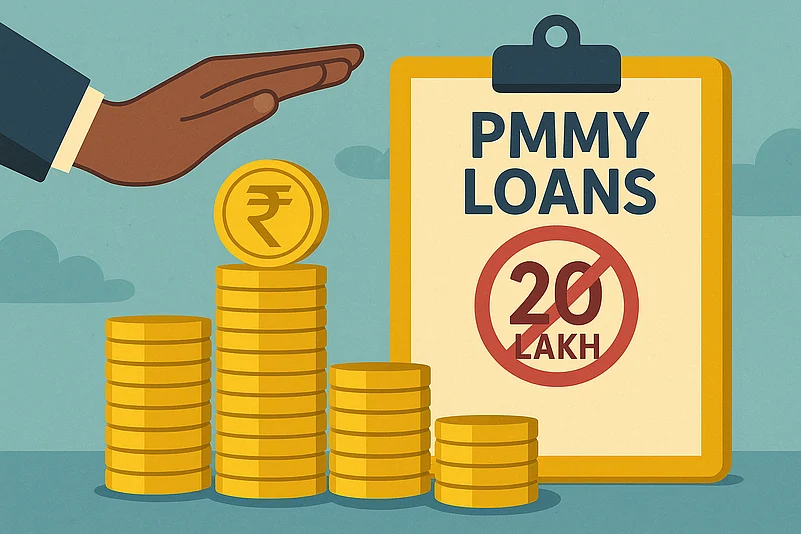
Summary of this article
Government confirms no plan to raise PMMY loan cap beyond the current Rs 20 lakh
No evidence links MSME financial stress directly to monthly GST payment obligations
Budget 2025-26 offers expanded credit cover, new schemes, and targeted sectoral support for MSMEs
The government clarified that there was no proposal to increase the upper cap of Rs 20 lakh under the Pradhan Mantri Mudra Yojana (PMMY) to Rs 50 lakh. The Minister of State for Finance, Pankaj Chaudhary, made this clear in the Lok Sabha on July 28, 2025, against Members of Parliament Giridhari Yadav and Dinesh Chandra Yadav's question.
PMMY, launched in 2015, focuses on extending institutional credit in the form of collateral-free loans to micro and small businesses dealing in manufacturing, trading, services, and allied agricultural activities. Scheme loans are divided into three segments: Shishu (loans up to Rs 50,000), Kishore (Rs 50,001 to Rs 5 lakh), and Tarun (Rs 5 lakh to Rs 20 lakh). The present upper limit for PMMY loans is Rs 20 lakh, and the government has clarified that there is no intention to change this cap at present.
Issues With MSME Distress
The MPs further expressed concern over the financial strain experienced by the manufacturing sector of the Micro, Small and Medium Enterprises (MSME) industry. They inquired if forcing an obligation to pay Goods and Services Tax (GST) monthly was causing the strain. The minister of finance, in reply, confirmed that there is no data available to say that month-to-month GST payments are the leading reason for MSME hardship in the manufacturing sector.
But the government has recognised that it has undertaken various measures to alleviate compliance burdens on small businesses, especially in terms of GST filing and payment.
GST Relief Measures Already in Place
The response highlighted a range of steps taken by the government in recent years on the recommendations of the GST Council. Some of these are: raising the threshold of GST registration from Rs 20 lakh to Rs 40 lakh for entities dealing in goods, and boosting the turnover cap under the composition scheme from Rs 75 lakh to Rs 1.5 crore.
Small taxpayers with turnover of up to Rs 5 crore can now avail the Quarterly Return Filing and Monthly Payment (QRMP) scheme, which enables them to file returns on a quarterly basis, which was changed from the existing monthly basis. GST registration is now fully online, and grant of approval is presumed if action is not taken within a certain timeframe. Taxpayers are now able to use UPI and IMPS for making GST payments, increasing the digital payment avenues.
New Budget Initiatives for MSMEs
In addition to these continuous efforts, the Union Budget 2025-26 has introduced a number of support initiatives specifically for MSMEs. The credit guarantee cap has been increased from Rs 5 crore to Rs 10 crore for ordinary businesses, and from Rs 10 crore to Rs 20 crore for startups. The investment and turnover criteria to classify MSMEs have also been increased to expand the base of eligibility.
Apart from the these, other measures include launching a new Fund of Funds, a scheme for first-time entrepreneurs, and special product-based schemes for sectors such as footwear and leather, toys, and food processing. These are aimed at developing the MSME ecosystem through financial support, ease of compliance, and promotion of sector.










